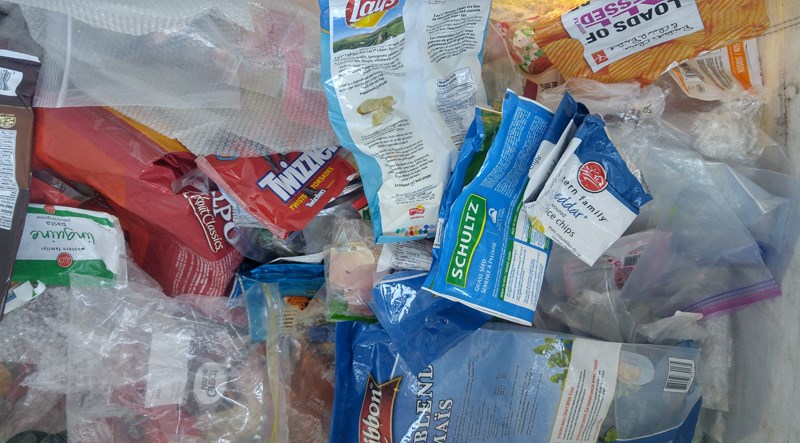To the delight of many, recycling depots across BC started collecting a new category of plastics last June. Overnight, all that packaging we didn’t know what to do with suddenly had a place to go other than a landfill.
Consumers everywhere were relieved of the guilt of purchasing items whose packaging had no home but the garbage. But unless you did your research, you might not have realized that this newer category of packaging is not necessarily being recycled, at least not quite yet.
Officially called “Other Flexible Packaging,” we all know this newer stream as the mesh bags our onions came in, the woven tarp-like rice bag, our gluten-free flour packaging, the wrapping most of our secret indulgences come in, the bubble wrap we addictively pop, and the like. Being such a popular form of packaging, one would think they should have been included at depots much sooner, but the fuller story is more complex.
Not all plastics are created equal. The plastic from a pop bottle or milk jug commands a higher price on the market than the plastic in your cheese wrapper or coloured detergent bottle.
The reasons are many, but the bare bones are that transparent, white and food-grade plastics are the most sought after because they can be recycled into a wider variety of items. Plastics glued or laminated together are also undesirable, as are many of the ones in this newer recycling stream. The latter are a challenge for the recycling industry because they have odd melting points, and sometimes unknown glues in the mix.
These new plastics have been flooding the market because they have so many appealing characteristics. They are lightweight, able to keep food fresher longer, and cheaper. What they lack is ease in recyclability.
Recycle BC has decided to address this challenging plastic type by collaborating with Merlin Plastics, and conducting research to find out how to recycle as much of it as possible. In the meantime, however, to be transparent, what is not recycled is being transformed into engineered fuel.
What this means is that the plastics are processed in such a way to remove chlorine and sulphur. They are then being used as an alternative to coal fuel, used to stoke the fires of industry, in particular, cement kilns.
All this leads to the question of what the average citizen can do when the Goliath of plastic packaging is an intimidating beast to spar with. For one, this is yet another reason to aim for accumulating the least amount of packaging possible.
Shop in bulk, bring your own bags, opt for avocados outside the mesh bag, and maybe even learn to make a few of your favourite types of snacks.
Let’s Talk Trash is qathet Regional District’s waste-reduction education program.



